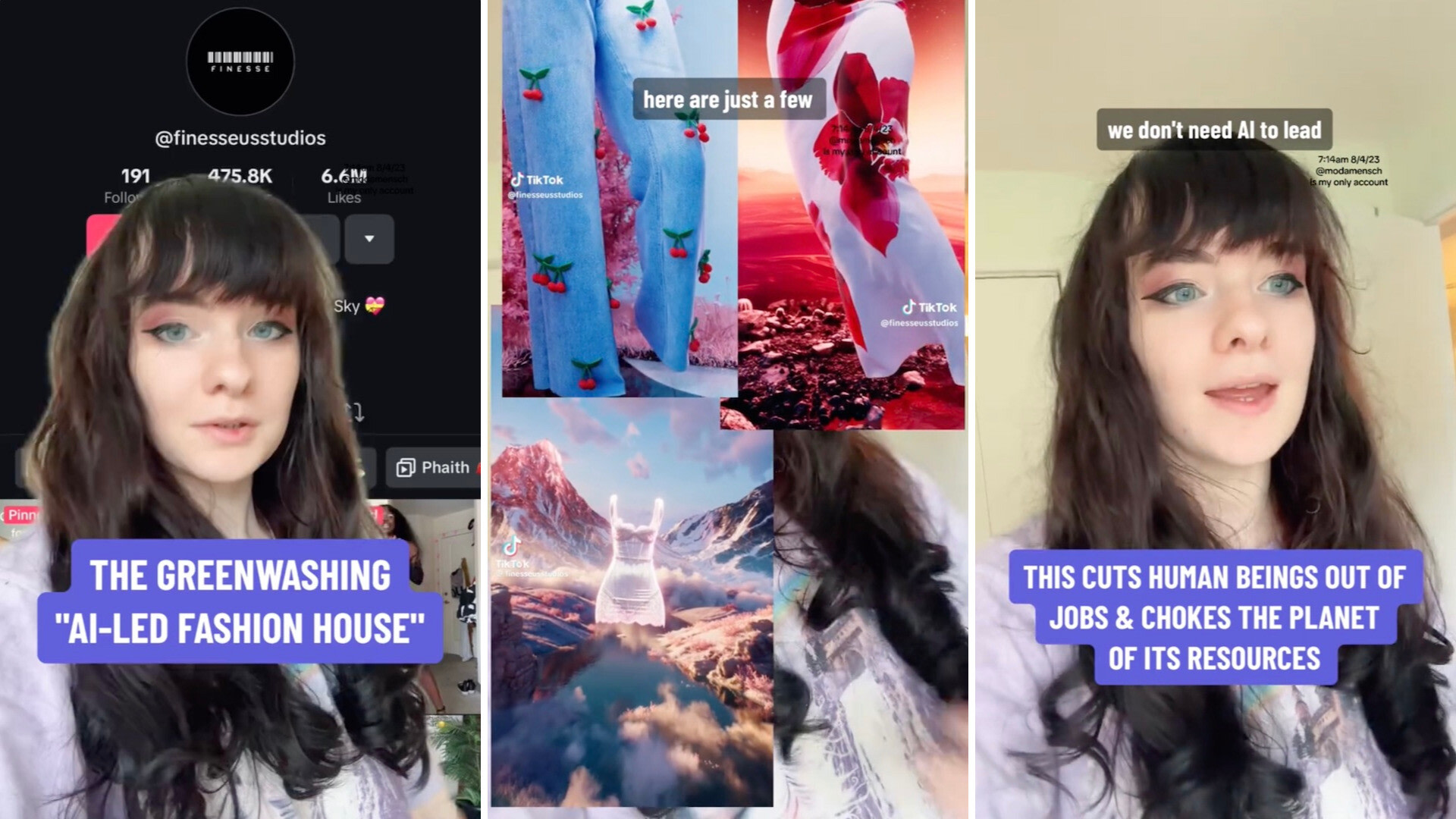Fashion
Expert slams up-and-coming fashion brand over questionable business practices: ‘Completely unnecessary’

A sustainable fashion educator is calling out up-and-coming AI-driven fashion house Finesse, describing its business model as “a great example of what greenwashing looks like.”
In a TikTok clip, Jade (@modamensch) shares a screenshot from Finesse’s website. The brand boasts that its proprietary AI algorithms and weekly consumer voting process help it avoid overproduction, resulting in an ethical, less wasteful fashion supply chain from the bottom up.
@modamensch a lesson in greenwashing: generative ai can never be sustainable #sustainability #sustainablefashion #fashiontok #fashiontiktok #fashion #greenwashing #consciousconsumer #environmentalist #slowfashion sustainability greenwashing generative ai finesse studios #greenscreen ♬ original sound – Jade ✡︎ Sustainable Fashion 🪬
As Finesse is using all of the right eco buzzwords, some climate-minded consumers who enjoy thrifting may be enticed to try its products as another alternative to a fast-fashion sector that has repeatedly come under fire for its highly polluting practices and alleged human rights abuses.
However, Jade invites her viewers to investigate Finesse’s suspicious claims, going so far as to say that “generative AI can never be sustainable” and sharing parts of an article from the scientific journal Nature to make her case.
As Kate Crawford highlights in that report, OpenAI chief executive Sam Altman warned at the annual World Economic Forum in Davos, Switzerland, that the AI industry may soon face an energy crisis, telling attendees that “there’s no way to get there without a breakthrough.”
That is because generative AI takes up a sneaky amount of energy, with a single search requiring four to five times as much power as a traditional web search. One assessment found that OpenAI’s ChatGPT uses as much power as 33,000 homes.
“Within years, a lot of these large AI systems like ChatGPT are expected to use as much energy as entire nations,” Jade says as she reads through Crawford’s report. Crawford has been publishing articles about the AI industry’s environmental costs since 2018.
The TikToker also highlighted Nature’s breakdown of how generative AI systems need large volumes of water to operate effectively, with Google and Microsoft reporting 20% and 34% increases in water use, respectively, in one year as they developed their large language models.
“So please, do not believe any company claiming their use of generative AI is sustainable when it would be much better for the environment and more ethical to just hire people to design your products for you,” Jade concludes.
🗣️ What should the government do about the fast fashion industry?
🔘 Set strict regulations 🚫
🔘 Incentivize sustainable options 💰
🔘 Use both regulations and incentives 🏛️
🔘 Nothing 🙅
🗳️ Click your choice to see results and speak your mind
Other TikTokers were grateful for the information and similarly outraged.
“I honestly had no idea about the energy drain of AI so THANK YOU,” one commenter wrote.
“Unsustainable and completely unnecessary,” another said.
Join our free newsletter for good news and useful tips, and don’t miss this cool list of easy ways to help yourself while helping the planet.







